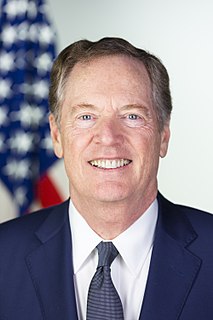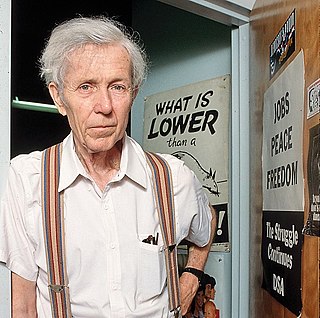A Quote by Robert Kuttner
Technological advance often thrives in sheltered and subsidized markets, which defy free trade.
Quote Topics
Related Quotes
I think markets are mechanisms that determine prices that are necessary for mass heterogenous populations, and markets do generate levels of technological innovation and productivity that is crucial. But when unregulated, they often generate levels of vast inequality and ugly isolation that makes it difficult for people to relate and connect with one another.
A free-enterprise economy depends only on markets, and according to the most advanced mathematical macroeconomic theory, markets depend only on moods: specifically, the mood of the men in the pinstripes, also known as the Boys on the Street. When the Boys are in a good mood, the market thrives; when they get scared or sullen, it is time for each one of us to look into the retail apple business.
Hillary Clinton's position on policy on markets and trade is very plain, which is we'll do trade deals but only if they meet three criteria, increase American jobs and wages and are they good for national security. If they are and if we can enforce them, then trade deals are okay. If not, we can't embrace them.
Colombia was a big wheat producer in the 1950's. That was eliminated by what sounds like a nice plan, called "Food for Peace. " It's a plan by which US taxpayers subsidized US agribusiness to send food to poor countries. This, of course, destroyed the domestic agricultural markets of these countries, opening these markets to US agribusiness.

































